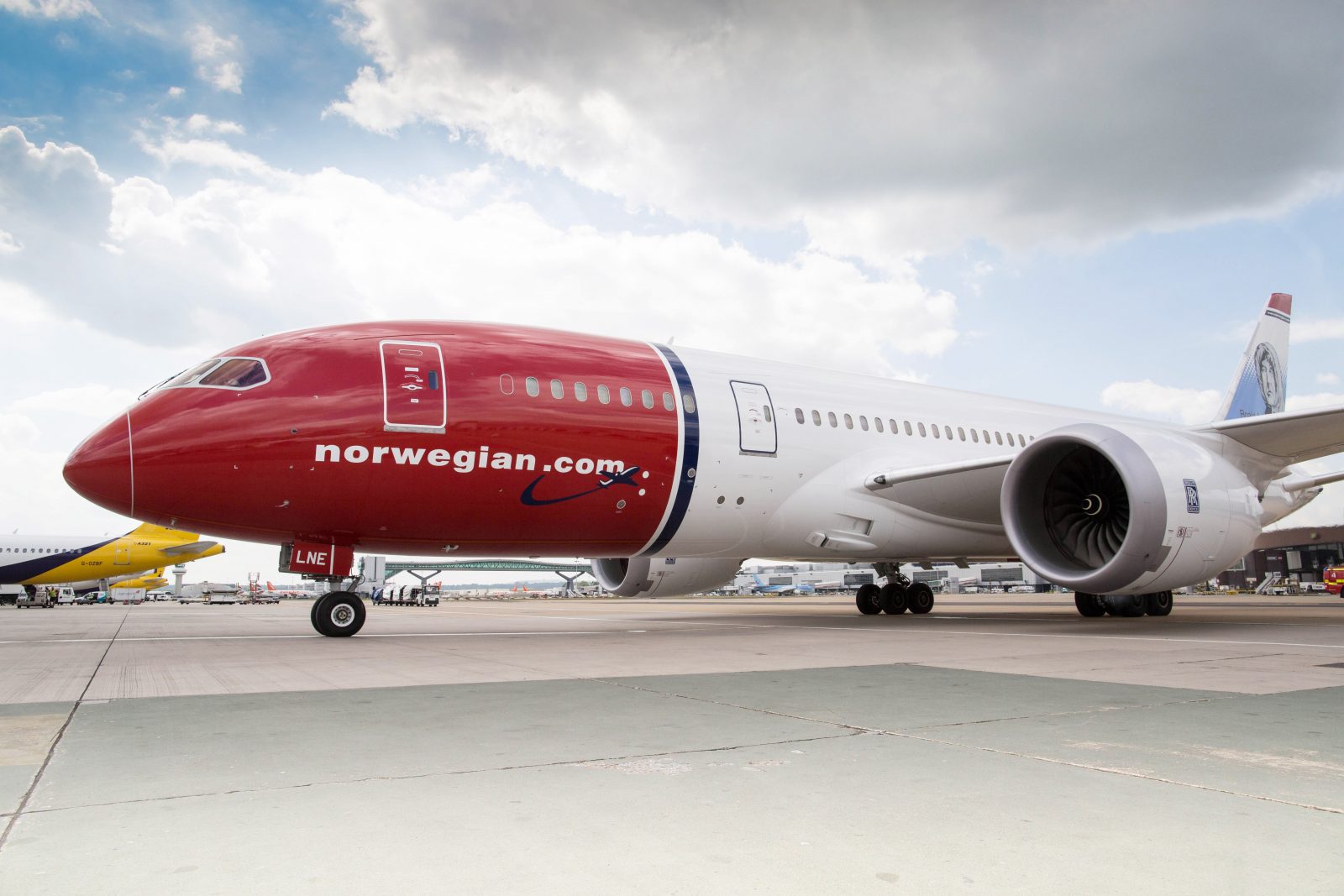
A new report by the International Council on Clean Transportation has ranked the fuel efficiency of 20 airlines which operate nonstop Transatlantic flights between Europe and the United States. In the latest rankings, low-cost operator Norwegian came in as the most fuel-efficient airline by a long margin.
On the other end of the spectrum, British Airways was ranked as the least fuel-efficient airline, closely followed by Lufthansa and United Airlines. The average gap between Norwegian and British Airways was 63% – a 12% increase on 2016 figures. However, the report’s authors do note that BA improved the fuel efficiency of its fleet but fell short on average seating density.
In a way, the report favours low-cost operators who are able to cram more passengers into the same airframe space as full-service airlines who typically have more spacious Business and First Class cabins. Nonetheless, Norwegian’s fleet of brand new and very fuel-efficient Boeing 787 Dreamliner’s and 737MAX jet’s would most definitely have helped.
 According to the report, fuel burn was considered the most important factor in determining the rating – meaning that airlines which use older aircraft (such as British Airways and Lufthansa which use Boeing 747’s) will always rank lower even if they did increase the seating density of their aircraft.
According to the report, fuel burn was considered the most important factor in determining the rating – meaning that airlines which use older aircraft (such as British Airways and Lufthansa which use Boeing 747’s) will always rank lower even if they did increase the seating density of their aircraft.
As an example, the rankings for both Virgin Atlantic and Aeroflot increased significantly on the back of the two airlines bringing more fuel-efficient aircraft into their respective fleets.
“The most important thing an airline can do for the environment is to invest in new fleet of aircraft. Our strategy to have a modern fleet is paying dividends not only for our business and customers, but also our planet,” explained Norwegian’s chief executive, Bjørn Kjos.
According to the airline, emissions per passengers have dropped by some 30% since 2008 after heavy investment in new aircraft.
British Airways, which is the world’s largest operator of the Boeing 747-400 jumbojet, plans to retire the ageing fleet by 2024 – this should dramatically improve its ranking although seating density will no doubt put it behind low-cost operators.
Mateusz Maszczynski honed his skills as an international flight attendant at the most prominent airline in the Middle East and has been flying ever since... most recently for a well known European airline. Matt is passionate about the aviation industry and has become an expert in passenger experience and human-centric stories. Always keeping an ear close to the ground, Matt's industry insights, analysis and news coverage is frequently relied upon by some of the biggest names in journalism.







